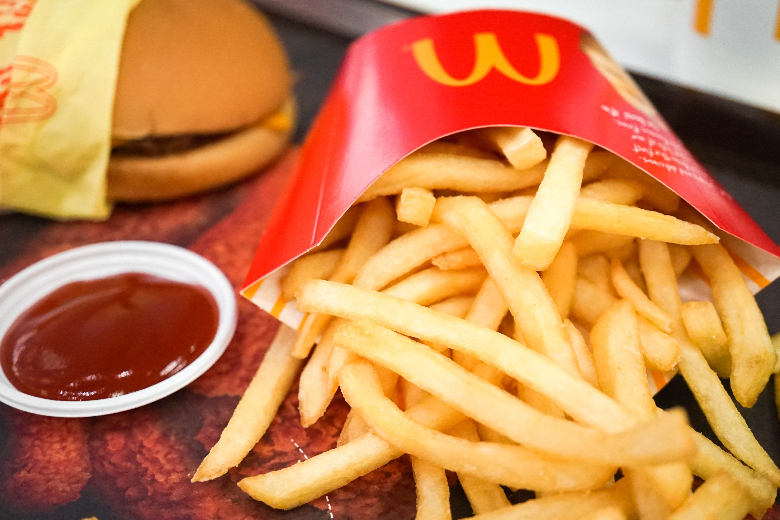Lamb Weston Holdings, Inc., the largest producer of frozen french fries in North America, is shutting down its plant in Connell, Washington, and laying off 375 workers as part of its efforts to cut costs amid declining demand for frozen potatoes and soft restaurant traffic. The decision comes after the company’s financial performance in the first quarter of Fiscal Year (FY) 2025 showed significant losses, prompting restructuring efforts.
In a press release on October 1, Lamb Weston’s president and CEO, Tom Werner, outlined the company’s struggles, attributing its downturn to decreased demand in the foodservice industry and ongoing challenges in the frozen potato market. “Restaurant traffic and frozen potato demand, relative to supply, continue to be soft,” Werner said. He added that these trends are expected to persist throughout the remainder of FY 2025.
As part of its restructuring plan, Lamb Weston is closing the Connell facility, one of its older and higher-cost plants. The closure will result in the loss of approximately 375 jobs, amounting to a four percent reduction in the company’s total workforce. The company hopes this move will improve its operating efficiency and long-term profitability while enabling strategic investments to support its customers and stakeholders.
The Washington plant’s closure highlights the broader financial challenges facing Lamb Weston. The company reported a significant 46 percent drop in net income in the first quarter of FY 2025, falling to $127 million compared to the same period in FY 2024. Despite this decline, Werner expressed optimism about Lamb Weston’s ability to manage its operating costs and maintain solid price performance. “We delivered first-quarter financial results that were generally in line with our expectations,” he said. “However, we believe the market softness will remain through fiscal 2025.”
Lamb Weston, based in Idaho, supplies frozen french fries to major fast-food chains, including McDonald’s, which is heavily reliant on the company’s products for its popular menu item. This dependency has tied Lamb Weston’s fortunes closely to the broader fast-food industry, which has been grappling with changing consumer behaviors and rising costs.
One significant factor affecting Lamb Weston and its customers is the steep rise in fast-food prices over the last few years. According to data from the Department of Labor, fast-food prices have surged by 33 percent since 2019. This sharp increase has outpaced the 26 percent rise in grocery prices during the same period, making dining out more expensive for many consumers. As a result, fast-food chains like McDonald’s, Burger King, and Wendy’s have responded by offering promotions to attract more customers.
In an attempt to boost foot traffic and appeal to cost-conscious consumers, McDonald’s introduced a $5 “Meal Deal” over the summer. The deal includes a McDouble burger or McChicken sandwich, a four-piece chicken nugget, small fries, and a small drink. Other competitors, such as Burger King and Wendy’s, have launched similar value meals that include fries, hoping to lure customers back into their restaurants despite the rising prices.
However, even with these promotions, fry consumption has noticeably decreased. Werner pointed out that many consumers are opting for smaller portion sizes in these value meals, which is having a negative impact on the overall demand for french fries. “It’s important to note that many of these promotional meal deals have consumers trading down from a medium fry to a small fry,” he explained. This shift in consumer behavior has added to Lamb Weston’s challenges in balancing supply and demand for its products.
The closure of the Connell plant is part of Lamb Weston’s broader efforts to address these difficulties while remaining competitive in the long run. Werner emphasized that the company’s priority is to streamline its operations and enhance profitability.
“We are taking proactive steps designed to improve our operating efficiency, profitability, and cash flows, while also positioning us to continue to make strategic investments to support our customers and create value for our stakeholders over the long-term,” he said.
The decision to shut down the plant has sparked concern in the local community, where the loss of 375 jobs will have a ripple effect on the economy. For Lamb Weston, the move marks a critical turning point as it seeks to navigate the challenges of a rapidly evolving market and ensure its future success.
As the fast-food industry continues to adapt to rising costs and shifting consumer preferences, companies like Lamb Weston are feeling the pressure to make tough decisions to protect their bottom line. The combination of rising food prices, changes in consumer habits, and uncertain demand has created a difficult environment for producers and suppliers alike.
The broader question remains whether companies can strike a balance between maintaining profitability and continuing to meet the needs of their customers. For Lamb Weston, the closure of the Washington plant is a significant step in that direction, but only time will tell whether it will be enough to secure the company’s long-term viability in a challenging market.

